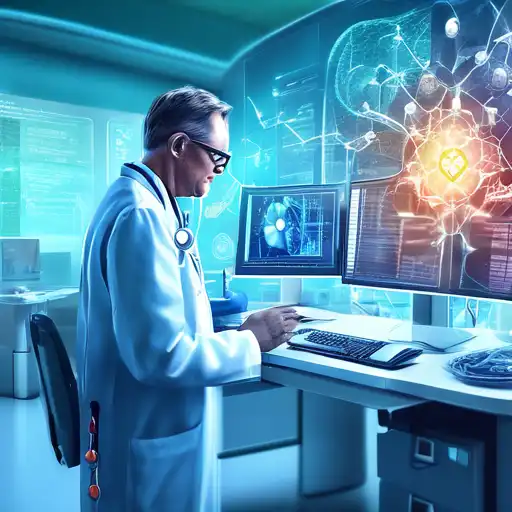The Transformative Impact of Data Science on Healthcare
In recent years, data science has emerged as a revolutionary force in healthcare, offering unprecedented opportunities to improve patient outcomes, streamline operations, and reduce costs. By harnessing the power of big data, machine learning, and predictive analytics, healthcare providers can now make more informed decisions, personalize treatment plans, and predict health trends with remarkable accuracy.
Personalized Medicine and Treatment Plans
One of the most significant contributions of data science to healthcare is the development of personalized medicine. By analyzing vast datasets, including genetic information, lifestyle factors, and medical history, data scientists can help doctors tailor treatments to individual patients. This approach not only enhances the effectiveness of treatments but also minimizes side effects, leading to better patient outcomes.
Predictive Analytics in Disease Prevention
Predictive analytics is another area where data science is making a profound impact. By analyzing patterns in health data, algorithms can predict outbreaks of diseases, identify at-risk populations, and suggest preventive measures. This capability is particularly valuable in managing chronic diseases and infectious disease outbreaks, enabling healthcare systems to allocate resources more efficiently and save lives.
Enhancing Operational Efficiency
Data science also plays a critical role in improving the operational efficiency of healthcare facilities. From optimizing staff schedules to managing inventory and reducing patient wait times, data-driven insights help hospitals and clinics operate more smoothly. This not only improves the patient experience but also reduces operational costs, making healthcare more accessible to everyone.
Challenges and Ethical Considerations
Despite its many benefits, the integration of data science into healthcare is not without challenges. Issues such as data privacy, security, and ethical use of patient information must be carefully managed. Healthcare providers and data scientists must work together to establish robust frameworks that protect patient rights while leveraging the power of data to improve health outcomes.
In conclusion, data science is transforming healthcare in ways that were unimaginable just a few years ago. From personalized medicine to predictive analytics and operational efficiency, the potential benefits are vast. However, as we navigate this new frontier, it is essential to address the ethical and practical challenges to ensure that the advancements in data science benefit all stakeholders in the healthcare ecosystem.
For more insights into how technology is shaping the future of healthcare, explore our articles on medical technology and healthcare innovation.
